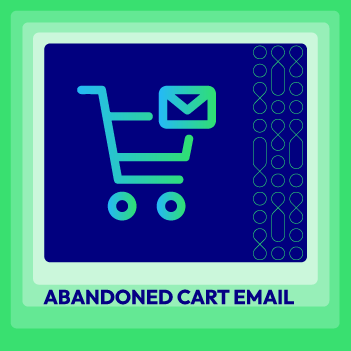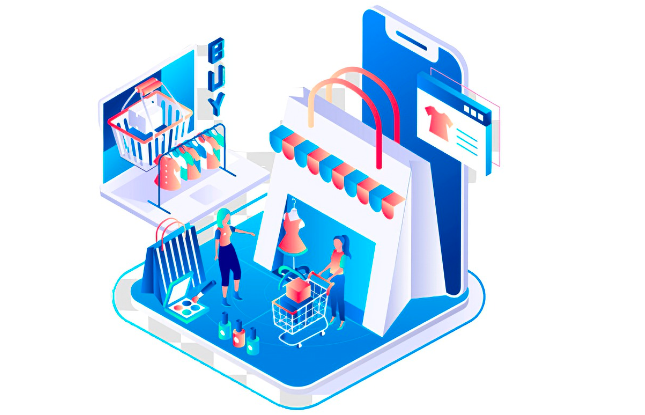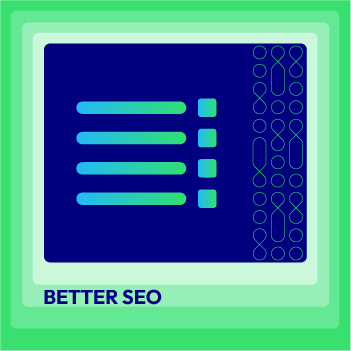Enterprise Ecommerce Software: Best Solutions for B2B Sales
Summer Nguyen | 09-21-2023


The Most Popular Extension Builder for Magento 2
With a big catalog of 224+ extensions for your online store
For small and medium-sized businesses, there’s a wide choice of ecommerce platforms for going digital. But for larger enterprises with complex needs, options shrink. Enterprise ecommerce software, designed for sizable businesses, are crucial for meeting precise requirements. They are scalable to accommodate growth and offer advanced customization, including marketing analytics, inventory management, and customer data handling.
According to TrustRadius, as of the onset of 2020, 45% of the procurement activity in the ecommerce software sector has originated from enterprise-level companies, which are defined as those with more than 1,000 employees. This underscores the current opportune moment for enterprise businesses to enhance their ecommerce capabilities.
Whether you’re a seasoned professional seeking to optimize your existing platform or a newcomer looking to make the right choice, this article will provide you with invaluable insights and recommendations about the best enterprise ecommerce solutions for B2B sales. Join us as we navigate the intricate terrain of enterprise ecommerce software to help your business thrive in the competitive B2B market.
How to Start the Replatforming Process

Deciding whether to select a platform or undertake a replatforming effort necessitates the involvement of multiple internal stakeholders.
Right from the start, engage various departments within your organization, including IT, operations, logistics, marketing, design, and customer service, to gain a comprehensive understanding of how your chosen platform will impact each team. Collect their input and initiate the process of compiling a list of essential requirements and priorities.
Subsequently, issue a Request for Proposal (RFP) for ecommerce to establish precise internal business objectives and goals, while also conveying these objectives to potential platform providers. This approach allows you to assess each platform based on your own criteria, rather than being swayed solely by the sales pitches of various platforms.
While crafting your RFP and delineating your business requirements, here are some factors you might want to take into account:
Define main business objections for migrating
To determine your needs effectively, it’s essential to clearly outline your destination:
- Are you aiming to reduce expenses while increasing profits?
- Do you intend to enhance the user interface for improved conversion rates?
- Is your current platform struggling to keep up with your expanding business?
- Do you require a platform with better integration capabilities for third-party solutions?
- Is avoiding vendor or service provider lock-in a priority?
- Do you need a platform capable of real-time data analysis?
- Are you seeking a website optimized for both desktop and mobile devices?
- Do you require support for managing multiple stores?
While these questions are crucial considerations before embarking on a replatforming endeavor, every enterprise business will assign different priorities to them — and that’s perfectly acceptable. Determine which objectives hold the utmost importance for your business so that you can begin the process of narrowing down your platform options right from the outset.
Identify pain points with your current platform
If you’ve come this far, it’s likely that you aren’t entirely satisfied with your current system. It’s now essential to articulate the specific ways in which your current platform falls short of meeting your requirements.
What are the areas causing you difficulties?
- Is your existing platform outdated and unreliable, especially during peak traffic conditions?
- Are your organization’s critical information systems (ERP, OMS, WMS, etc.) challenging to integrate with your current platform?
- Is the total cost of ownership rising due to increased IT staff, unexpected maintenance costs, or platform consolidation necessitated by a recent merger or acquisition?
- Do you have concerns about PCI compliance or the security of your current system?
- Are you heavily reliant on your hosting company for server performance?
- Have you experienced revenue losses due to system failures or the need to divert attention from core business activities?
- Are your conversion rates below industry benchmarks?
- Does your current platform lack the necessary analytics to derive meaningful insights and enhance your website?
- Does your current platform lack support for global currencies and payment gateways?
- Is your website missing social media capabilities?
If more than one of these pain points applies to your business, it may be time to seriously consider the prospect of replatforming.
Determine critical existing ecommerce features and integrations
Despite the pain points, it’s evident that your current enterprise ecommerce software is doing some things right. To make a successful transition to a new system, take careful note of all the existing features and integrations that you need to maintain, whether they are native to your current platform or custom-built by your team.
Consider the following:
- Are there specific integrated solutions your business relies on, such as inventory management, order management, shipping, or customer management?
- Do you require particular page-building functionality or specific catalog requirements?
- Are you planning to support an omnichannel strategy, including expansion into brick-and-mortar stores, selling on social media platforms, or opening other online sales channels?
- Do you manage more than one online store that needs to be supported on the same platform?
- Is it crucial for your business to accommodate various payment methods and currencies?
- Does your current platform incorporate AI-based technology for customer recommendations?
- Does your business need capabilities for both B2C and B2B operations?
Identify the features and functionalities that are absolutely indispensable to your business operations, and ensure that your new platform either includes these features natively or can seamlessly integrate them to meet your needs.
What features would be nice to have?
Certainly, when you’re in the process of replatforming, it’s not only about addressing your current pain points but also about incorporating wishlist items that would be valuable to have, even if they aren’t absolute necessities. In addition to the fundamental ecommerce functionality, here are a few unique features you might consider when setting up your store:
- Abandoned cart recovery.
- Coupon and discount code management.
- Single-page checkout for streamlined purchases.
- Multi-channel management for selling across various platforms.
- B2B capabilities for business-to-business transactions.
- A fully customizable checkout process.
- Page builder for creating custom web pages.
- Real-time shipping quotes to provide accurate shipping costs.
- Headless ecommerce capabilities for enhanced flexibility and customization.
- Integration with marketplaces to expand your reach.
While your primary focus should be on finding a platform that fulfills all your critical requirements, once those needs are met, it’s worth comparing platforms based on their unique features and offerings. Even though these features may not be deemed “essential” for your business, they could potentially give your business the competitive edge it needs.

Abandoned Cart Email for Magento 2
Solutions to abandoned carts issue, helping online businesses boost sales and enhance conversion rates (Hyva ready)
Check it out!Verify key system integration requirements
Your ecommerce platform must possess effective integration capabilities with the key systems employed by your business, unless you’re prepared to undertake migrations from these systems as well. These integrated systems and technologies play a pivotal role in connecting various departments, services, and software, ultimately enhancing operational efficiency.
Particularly for modern enterprises that operate with a multitude of systems, applications, and business processes, it’s absolutely crucial that your ecommerce platform can seamlessly integrate with all of your existing systems, and ideally, offer compatibility with new ones. These may encompass a range of systems, including your Enterprise Resource Planning (ERP), Warehouse Management Software (WMS), Product Information Management (PIM), Customer Relationship Management (CRM), and Marketing Automation Platform (MAP), among others. This comprehensive integration ensures the smooth flow of data and operations across your organization.
Future systems integrations required for phase two
At this step, it’s crucial to contemplate the trajectory your company is heading towards.
Your next ecommerce platform should possess the flexibility and scalability necessary to expand alongside your business as you venture into new markets, whether it’s through brick-and-mortar locations, online marketplaces, or any other sales channels.
Take the time to ponder your future plans and objectives in terms of features and integrations with your platform. Ensure that your new platform is equipped to support these endeavors. After all, you wouldn’t want to undergo the hassle of replatforming just a few years down the road due to evolving business needs.
Types of Enterprise Ecommerce Solutions Available

On-site
You take charge of hosting your ecommerce platform for your online store. Since enterprise ecommerce software is open-source, you have the flexibility to make extensive modifications to meet your specific needs. This used to be the go-to choice for large-scale enterprise retailers due to its ideal flexibility. However, the cost of ownership tends to be higher compared to hosted ecommerce platforms because you’re responsible for server and software maintenance. This approach requires more programming, but if you have access to in-house programmers for software customization, it can be a great fit. If maintaining an IT department isn’t a priority, on-site ecommerce may not be the best option. It’s a suitable choice if your main goal is to have a highly customizable solution.
Software-as-a-Service (SaaS)
SaaS platforms are a popular choice for many B2B and B2C companies because they offer ecommerce functionality with less complexity compared to self-hosting. Generally, they come with lower ownership costs. Instead of purchasing the platform outright, you pay for platform hosting and management from another company. While this option means you’ll have less control over the code, it also reduces the maintenance workload. If you prefer to allocate more of your budget to marketing tools, customer service, and other areas, you’ll appreciate what this enterprise ecommerce software provides.
Headless {#headless}
Headless commerce, a type of SaaS platform, offers an alternative to traditional interdependent systems. The site architecture is more flexible, allowing for customization and automation where needed. “Heads,” such as customer transitions, product catalog tools, employee support, remain separate from your ecommerce store. This provides greater freedom and control over customer interactions without the need to manage areas you’d rather automate. Headless sites can operate faster and may even be more cost-effective than other options, making them increasingly popular for various types of digital commerce.
Cloud-Based {#cloud-based}
Cloud-based hosting stores your website on the cloud rather than a local computer network. Various options are available, depending on your needs and preferences.
Open Source Cloud-Based
With an open-source cloud-based ecommerce platform, your company owns and can modify the code, providing substantial control over servers and software. Similar to on-site platforms, you’re responsible for tasks like website security. If you lack a robust IT department or don’t plan to invest in one, relying on an open-source ecommerce platform might not be the right decision. Managing it can be time-consuming and increase the risk of costly errors.
Enterprise Ecommerce Hosting Options
SaaS hosting
Similar to SaaS platforms, SaaS hosting lets users “rent” software via a monthly fee, with the host handling backend IT tasks. This allows users to focus on their core business activities. The SaaS host manages applications, data, runtime, servers, storage, and networking. Users don’t need to download anything; an internet connection is all that’s required. The monthly subscription covers everything from maintenance to security, minimizing user involvement.
Cloud hosting
SaaS is one form of cloud-based hosting, but there are other options as well.
The first is Infrastructure-as-a-Service (IaaS), which, like SaaS, operates on a pay-as-you-use basis and can scale with your business growth. However, unlike SaaS, in IaaS, you license the enterprise ecommerce software from one company, while another party hosts your website.
IaaS offers full control over your site’s infrastructure but requires a clear understanding of your ecommerce needs. While the hosting provider manages servers and networking, you’re responsible for runtime, middleware, and application operating systems.
The second option is Platform-as-a-Service (PaaS), which includes infrastructure, middleware, and development tools. With PaaS, users access a specific platform and control panel to build applications. While it doesn’t demand extensive coding skills or building apps from scratch, PaaS is often favored by web developers who want complete control over their applications.
Self-hosting (on-premise)
Lastly, there’s the option for enterprise businesses to self-host on-premise. In this scenario, you, the merchant, must host the software using your own physical servers. If your business has adequate space or a data center for physical servers, self-hosting could be an option. However, if your business operates exclusively online, you might prefer a SaaS or other cloud hosting service.
Self-hosted software is typically open-source, allowing you to modify the entire source code. This offers greater flexibility for customizing your site to meet your specific needs, making it an appealing choice for enterprise-level businesses.
Self-hosting on-premise grants full control over servers and software. However, it also entails added responsibilities, such as managing hardware malfunctions, software issues, and security. This may necessitate an increased IT staff to handle hardware maintenance, manual updates, and security measures.
What to Consider in a New System

Costs
It’s not unexpected that an enterprise-level system comes with a higher price tag compared to the less robust system you’re currently using. In today’s fiercely competitive ecommerce landscape, the capability to sustain your operations is essential.
The specific features you select will also impact the pricing. An open-source enterprise ecommerce software is generally the costliest option as it entails increased IT expenses for maintenance and licensing fees.
On the other hand, opting for a SaaS ecommerce platform is typically more cost-effective in terms of both initial investment and ongoing maintenance. However, in exchange for these savings, SaaS platforms offer less flexibility. If having complete control over your entire operation is your top priority, be prepared for a higher expenditure.
Website performance
Your website should operate consistently, particularly during periods of heightened activity such as sales, holidays, or promotions. If a surge in traffic slows down servers or, worse, causes the site to become unresponsive, you risk losing customers and revenue.
Your chosen platform should maintain quick and efficient performance at all times. If you anticipate seasonal spikes in traffic, it’s crucial to select a platform capable of handling such fluctuations to ensure a seamless customer experience.
Capacity to handle traffic
Your customer base might be expanding, and your website traffic could be surpassing your current platform’s capacity. Alternatively, seasonal events, viral campaigns, or media features can lead to sudden and substantial increases in site traffic.
These situations are common and represent positive developments, indicating the growth and success of your business. However, when your online store experiences a surge in visitors, it’s imperative that your platform can effectively accommodate this influx. Your solution should not only handle your present traffic demands but also possess the scalability to accommodate your projected growth.
Security
Security should rank among your utmost priorities in choosing enterprise ecommerce software, as falling victim to a data breach can result in significant financial repercussions. Dealing with a breach entails expenses for IT to identify and rectify the security flaw responsible, potential legal costs, and the need to manage damage to your reputation.
Choosing an open-source platform places the responsibility for your website’s security squarely on your shoulders. Conversely, opting for a SaaS solution means that security and PCI compliance are professionally managed for you, reducing the burden and risks associated with security breaches.
Mobile optimization
Your enterprise ecommerce software should perform just as effectively on mobile devices as it does on desktops, even if mobile sales aren’t a significant portion of your business. While it may not be a top priority if most customers visit your site from a computer, it’s crucial to recognize that mobile traffic surpassed desktop traffic years ago. Therefore, ensuring a consistent user experience across devices has become essential.
SEO stability
While SEO is a critical concern for most ecommerce businesses, not all enterprise ecommerce platforms excel in this area. Some platforms come equipped with built-in SEO features and migration capabilities, while others may necessitate customization and third-party integrations.
When planning your platform, it’s essential to establish precise requirements for the SEO features you need. Your SEO team will likely have valuable insights to contribute, focusing on elements that enhance search engine crawlability for your site.

Drive more traffic to your online store and boost your rank on search engines
Check it out!Enterprise Ecommerce Platform Comparison for 2023
Now that we’ve explored the prevalent enterprise ecommerce software, hosting choices, and critical platform components, let’s proceed to compare some of the top enterprise ecommerce platforms available.
It’s essential to recognize that there’s no universally perfect platform that suits every enterprise business. The crucial step is to assess your business requirements and identify the platform that aligns most effectively with your future objectives.
Adobe Commerce (Magento)

Adobe Commerce, powered by Magento and integrated into the Adobe Experience Cloud, offers the flexibility of both on-premise and cloud-hosted options.
Magento provides extensive control over your platform, accommodating large product catalogs with numerous variants. It includes native features for product bundling, multi-store functionality, and more. Moreover, Magento enjoys a robust market presence and is a widely recognized brand.
Using Magento Commerce typically involves a significant reliance on designers and developers, along with substantial maintenance and support expenses, which can make it challenging to calculate the total cost of ownership. Nevertheless, Magento benefits from a strong developer community capable of addressing queries and resolving issues.
Shopify Plus
Shopify, a major player in ecommerce, introduced Shopify Plus in 2014 for enterprises.
As a SaaS solution, it handles PCI compliance, security, and offers mobile optimization and customizable checkouts. Also, this enterprise ecommerce software provides dedicated support with Merchant Success and Launch Managers, along with an extensive app catalog.
However, it relies on third-party apps for some features, potentially increasing total ownership costs. API usage is constrained, and additional costs may include transaction fees and paid extensions. B2B capabilities are somewhat limited, and it supports up to 10 storefronts.
BigCommerce
BigCommerce, once popular among smaller businesses, is now a choice for mid-market and enterprise firms. It offers an intuitive dashboard, robust SEO, built-in features, and SaaS benefits.
It provides flexible APIs, headless commerce, personalized onboarding, and dedicated support. Partner agencies specialize in design, development, and SEO. While it may have a learning curve due to extensive native features, BigCommerce University offers specialized training for a quick start.
Salesforce Commerce Cloud
Salesforce Commerce Cloud is a SaaS solution designed to help businesses streamline their omnichannel retail operations.
This integrated enterprise ecommerce software allows businesses to efficiently handle sales across both digital and physical channels using a single unified solution. It primarily targets B2C businesses. If you’re running a B2B or hybrid business, you should explore Salesforce CloudCraze instead.
It’s worth noting that while the platform offers a range of complementary services, it may necessitate prior programming and web development expertise.
SAP Hybris Commerce and Commerce Cloud

SAP Hybris Commerce provides the option for on-premise hosting or cloud-based deployment through SAP Commerce Cloud.
SAP Commerce Cloud, including SAP Hybris, comes equipped with native features that are particularly attractive to globally operating businesses. These features include support for multiple sites, languages, and currencies.
The platform also offers robust data management tools, Salesforce automation, subscription order management, support for multiple catalogs, and comprehensive omnichannel capabilities.
IBM WebSphere Commerce
IBM WebSphere has been the preferred enterprise ecommerce software for sizable businesses, offering various product options tailored to different segments of the enterprise market.
IBM WebSphere Commerce is available as an on-premise solution, and IBM also provides a SaaS alternative called IBM Digital Commerce.
Renowned in the enterprise ecommerce sector, IBM WebSphere excels in handling intricate business requirements with an extensive array of native features. Its strong suit historically lies in robust customer support, and it has a track record of powering major enterprise clients.
Oracle CX Commerce
Oracle CX Commerce, formerly named Oracle Commerce Cloud, is the cloud-hosted counterpart of the on-premise Oracle Commerce. It serves a diverse range of B2B and B2C customers across various industries through a single SaaS platform.
Oracle Commerce Cloud was constructed with an API-first architecture, allowing for versatile development. It incorporates AI capabilities and facilitates multi-channel strategies. However, some customers caution about elevated maintenance and overhead expenses, which could deter cost-conscious retailers.
Comparing Your Enterprise Ecommerce Software Options
Talk to the platform provider
Relying solely on website information for platform comparisons can be biased. Platform providers often emphasize their strengths online, making it challenging to choose the right one. That’s why issuing an ecommerce RFP is crucial.
Engage with enterprise ecommerce software providers directly to understand their capabilities, beyond what’s on their website. Once you have a shortlist, contact them for sales pitches and answers to your tough questions. Clearly communicate your business requirements, priorities, and non-negotiables in this process.
Attend ecommerce events
To keep abreast of ecommerce trends and explore platforms, attending ecommerce events is essential. These conferences hosted by ecommerce platforms provide insights into their technology and the chance to connect with industry partners, facilitating platform customization for your business. They also offer valuable learning experiences with top executives and networking opportunities to fuel business growth.
Speak to ecommerce consultants
For a more impartial perspective, consider consulting with an experienced ecommerce specialist specializing in replatforming. These experts have hands-on experience and can provide valuable insights, challenges, and lessons learned from their work in migrating enterprises between platforms. Whether it’s enhancing conversions, refining marketing strategies, or fostering business growth, they offer valuable expertise to help you choose the right solution for your business.
Ask other merchants
Just as you read customer reviews for unbiased product feedback, it’s smart to engage with fellow merchants when choosing an enterprise platform. Connect with businesses similar in size and operations that use the platform you’re considering. Learn about their experiences, what works well, and its limitations to gain firsthand knowledge and relevant use cases
Get feedback from development and/or marketing agencies
Another valuable source of firsthand insights is the marketing and development partners associated with your prospective platform. These teams possess extensive experience working with the platform and can provide insights into potential challenges you might face and strategies to overcome them.
The Final Word
If there were a one-size-fits-all solution, you wouldn’t be here. Finding the “right” enterprise ecommerce software depends on your specific business requirements, solution capabilities, and process integration. Ecommerce vendors offer valuable products to support your online store success, but no platform is universally perfect. When choosing for your online store, factor in your budget, ownership costs, required third-party integrations, and prioritize essential features. The ideal enterprise ecommerce software meets your current needs and scales with your growth.



